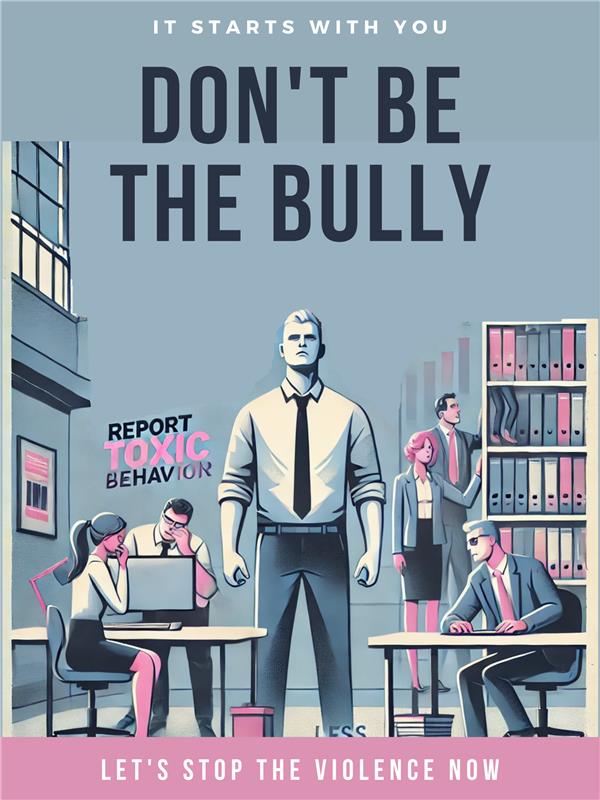Imagine that you are Regina George from the movie “Mean Girls”, where everyone listens to you, follows your lead, and to be honest, they even fear you. But if Regina were transported into a workplace setting and kept up her bullying antics, she’d be dealing with more than just Burn Book drama—she’d be facing some serious legal backlash, as workplace bullying is no joke in the real world.
The 21st-century Plastics of Bullying
This renewed form of bullying may not be as clear as ‘Pink Wednesdays’ or as outright as ‘You can’t sit with us’, but it is just as toxic. Largely like Regina’s mean moves of sabotage and humiliating behavior, bullying masks different forms, such as social exclusion, verbal abuse, and intimidation.i But unlike the movie, this can lead to cumbersome litigation, tarnished public image, and even huge financial payouts.
In reality, if Regina decides to attack a person depending on their race, gender, disabilities,ii age,iii or any other protected civil rights,iv it is a serious offense. In such cases, she may be prosecuted under Title VII of the Civil Rights Act,v rather than simply receiving a warning. Although there is no specific U.S. federal legislation that deals with workplace bullying (yet),vi 32 states have introduced multiple customized forms of the ‘Healthy workplace bill’vii to address workplace harassment, without the need to demonstrate that such bullying is only based on civil rights. This bill advocates for the enactment of anti-bullying legislation at state levels.viii Further, states like California additionally provide for accommodations, and prohibit harassment based on sexual orientation, medical condition, and gender identity.ix
The ‘Burn book’ might result in a legal tragedy:
This is where Regina’s strategies truly come undone. In the movie, she uses intimidation and manipulation to maintain control over others, including slander, making misogynistic comments, or worse. Not only can such behaviors be cruel in the workplace, but they can also give rise to a hostile work environment, a foundational concept in American employment law.x The legal consequences of bullying in organizations can be severe, both for the perpetrator and the employer. A hostile atmosphere develops when the behaviour becomes so extreme that it impacts an employee’s capacity to do their work. An organization may be held accountable for permitting this toxic culture to flourish if it takes no action.
When Regina’s actions aren’t so ‘Fetch’, but a legal dead end
Victims of bullying (like poor Cady, if she were an employee of a corporation) may file claims for constructive dismissal, arguing that the hostile work environment forced them to resign. That is the point at which the victim feels forced to give up because the bullying is so intolerable, which could lead to compensation claims for emotional distress, lost wages, or even penal damages. Moreover, employers can be held liable for not addressing workplace bullying, leading to civil lawsuits for intentional infliction of emotional distress,xi or even criminal charges in severe cases involving harassment or assault. Psychological safety is taken seriously by the Occupational Safety and Health Administration (OSHA) in the context of workplace safety. If employers fail to intervene and end bullying, they may be found in violation of OSHA standards and may face hefty fines.
It isn’t just word vomit. Even Regina George must watch her back.
Outside of theory, queen bee Regina would need to give up bullying and concentrate on creating an encouraging, welcoming work environment, or at the least, building a positive workplace culture to avoid legal blowback. Organizations can mitigate the risks by creating robust anti-bullying policies. These regulations ought to define bullying, precisely lay out the process for reporting incidents, and spell out consequences for offenders. To accommodate changing workplace conditions, the policy must also be adequately conveyed to every employee and revised regularly.
Let’s modify the significance of “it’s October 3rd” to National Bullying Prevention Awareness Month:
Awareness programs can facilitate understanding of the legal repercussions of bullying, to avoid being Regina. Organizations can minimize legal risks and enhance employee welfare by cultivating a respectful work culture through anti-bullying policies.xii Corporations must train and teach staff members how to identify and handle bullying, resolve conflicts, and develop emotional intelligence. They can also sensitize employees regarding the procedure to file a harassment complaint without worrying about facing reprisals, provide protection for victims through anonymity, and support through workspace-friendly initiatives like mental health support. Organizational heads can lead by example in modelling respectful behavior and resolving harassment complaints swiftly. Setting up an internal complaints committee to redress such grievances with intersectional representation will further this goal.
The bottom line: Be a nice coworker as opposed to a cruel one, since getting sued is worse than being unpopular!
Here at UFE, we aspire to build a collaborative partnership to advocate for the ‘global community first’ mission. We are allegiant to transparency, inclusivity, and a culture of respect in serving the underrepresented and marginalized communities. To learn more, visit www.unityforequality.org, or text to donate, by typing “UFE” to 707070 and amplifying our social impact.
Disclaimer: This material is disseminated by UFE for educational purposes only. The information stated here is not intended to provide legal advice. All liability with respect to actions taken or not taken based on the contents of this site are hereby expressly disclaimed. No reader, user, or browser of this site should act or refrain from acting on the basis of information on this site without first seeking legal advice from counsel in the relevant jurisdiction.
Disclaimer: This material is disseminated by Unity For Equality for educational purposes only. The information stated here is not intended to provide legal advice. All liability with respect to actions taken or not taken based on the contents of this site are hereby expressly disclaimed. No reader, user, or browser of this site should act or refrain from acting on the basis of information on this site without first seeking legal advice from counsel in the relevant jurisdiction.

